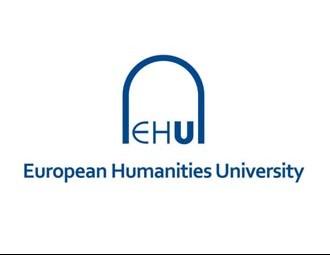Publication of analytical paper on optimising EHU's impact on Belarus

The European Humanities University was forced into exile in 2004, when Belarusian authorities withdrew its licence. This followed EHU’s refusal to change its leadership despite government pressure.
The exiled University found its new home in Vilnius. The current rector of the EHU should step down soon in line with the requirements of Lithuanian law, having served two terms. The Centre for Transition Studies publishes a paper authored by Yaraslau Kryvoi and Alastair Rabagliati which aims to launch a constructive public discussion on the direction of the EHU under the new leadership, to deal with the challenges facing both the EHU and Belarusian society.
The authors interviewed by e-mail and by telephone over 20 individuals related to the EHU, including its alumni, lecturers, administration, donors and well as representatives of Belarusian civil society who worked with the University in the past. Many agreed that an open discussion would benefit the university.
The EHU is an important and valuable institution for the future of Belarus. However, public information and debate about the direction of the university has been limited. Most media coverage has focused on the story of the university going into exile rather than its effectiveness. This paper intends to fill this gap.
The EHU is at a Crossroads
With no change in Belarus on the horizon, the university needs to prepare itself for continued exile. Ten years after the EHU established itself in Vilnius, many donors continue to support the EHU as they have taken natural sympathy for their struggle. However, they are now paying increasing attention to the impact of the funding, and considering in more detail whether the University could increase its self-funding.
As this paper demonstrates, the university has recently shifted its focus from Belarus-related courses, publications, staff and the Belarusian language towards an institution aiming to cater a broader group of students from the countries of the former Soviet Union. The Belarusian component was more prominent during its early years in exile. Now the vision of the University mentions Belarus primarily as a source of students, among other students from the region rather than as the main target of its activities.
The internationalisation of the University, which features prominently in the description of the University’s vision for the future, is likely to lead to a decrease in Belarus-focused studies, staff and students. The EHU risks losing its distinction from other regional private universities, which raises the question about why it should continue to be eligible for donor’s support.
For example, Polish universities (especially private ones, like Lazarski University) have neither specific donor support, nor a special focus on Belarus. However, their prices are affordable and Belarusians are ready to pay for the benefits of an EU education. Perhaps ironically it is Lazarski University that has organised a series of conferences on historical and political perspectives on Belarus that observers argue should be the EHU’s trademark.
Another concern is that joint programmes with other universities are liable in reality only to amount to subsidising Belarusian students to study at regular regional universities rather than creating a specific Belarus focused environment.
Therefore to fulfil its role as a university in exile and centre of academic development for a new generation of Belarusians, the University should retain its Belarusian character and focus on areas of “added value” for Belarus. Rather than becoming an ordinary “internationalised” university, the EHU should learn from other successful émigré universities, notably the Ukrainian Free University in Munich, which educated generations of Ukrainians.
Towards Greater Sustainability through Focusing on Belarus
With its location away from the restrictive political climate of Belarus, areas where the EHU is well positioned to provide “added value” include political science, Belarusian history, human rights, Belarusian language and literature as well as journalism.
The EHU with its new concept of internationalisation risks losing its distinction from other regional private universities, which raises the question about why it should continue to be eligible for donor’s support.
The EHU has the potential to become the main scientific hub for Belarus, both for research and academic studies. In this way it would be ideally placed to obtain further funding (such as through EU university research programmes) or donor support (linked to democratisation in Belarus).
The EHU could work on meeting the need for high quality research on Belarus, especially linked to developing concrete plans for reforms in Belarus. Currently there is a lack of organisations that are able to perform this role.
To increase interest among young Belarusians in programmes such as political science, history or Belarusian studies the university should not only offer scholarships but also recruit and retain high calibre academics working in these areas providing them with job security guarantees typical for EU universities.
The paper suggests establishing a robust disclosure mechanism of research, teaching and policy impact based on measurable indicators. This mechanism could take the form of expanding existing oversight bodies to ensure that relevant donors, implementers, Belarusian civil society, Belarusian diaspora and the Lithuanian government all have a chance to review reports and be consulted on the most important decisions.
While the aim of a sustainable EHU, less dependent on donors’ funding, is supported, this paper argues that donors should continue to firmly back the EHU as a valuable institution, which could play a unique role in the future of Belarus. External support, however, should be targeted at the “added value” areas while other EHU programmes could be paving the way for self-funding.
You can read the whole paper here.
-
03.01
-
07.10
-
22.09
-
17.08
-
12.08
-
30.09



























